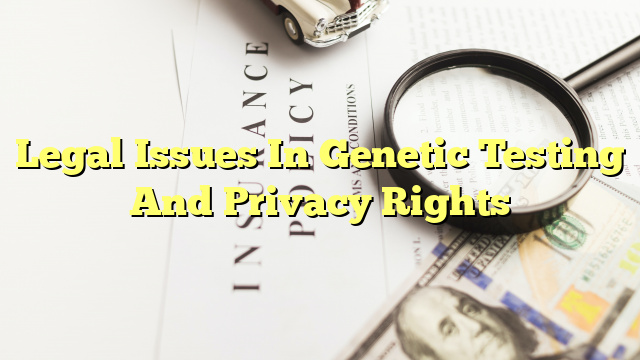Table of Contents
- Introduction
- Genetic Testing and Privacy Laws
- Issues with Genetic Privacy
- Confidentiality and Genetic Testing
- Main Controversial Issues
- Conclusion
Introduction
Genetic testing has become increasingly common and widely available over the past two decades. This technology has given us insight into our own genetic makeup and has enabled us to make informed decisions about our health. However, due to its very nature, genetic testing has raised a number of legal and ethical issues, such as the right to privacy, the right to know one’s own genetic information, and the right to control one’s own genetic information. In this article, we will explore the legal issues surrounding genetic testing and privacy rights, the issues with genetic privacy, the issues of confidentiality raised by genetic testing, and the main controversial issues associated with genetic testing.
Genetic Testing and Privacy Laws
The federal government has passed a number of laws in recent years to protect the privacy of individuals who undergo genetic testing. These laws, such as the Genetic Information Nondiscrimination Act (GINA) of 2008 and the Health Insurance Portability and Accountability Act (HIPAA) of 1996, protect individuals from discrimination based on their genetic information and ensure that their genetic information is kept confidential.
GINA prohibits discrimination based on genetic information by employers and health insurers. This law prohibits employers from using genetic information when making decisions about hiring, firing, or promotions, and it also prohibits health insurers from denying coverage or charging higher premiums based on a person’s genetic information.
HIPAA provides individuals with the right to access their own genetic information and to control who has access to that information. This law also requires that genetic information be kept secure and confidential, and it prohibits the misuse or unauthorized disclosure of genetic information.
Issues with Genetic Privacy
The legal protections provided by GINA and HIPAA have helped to protect the privacy of individuals who undergo genetic testing. However, there are still a number of issues with genetic privacy that remain unresolved.
One issue is the ability of employers and health insurers to obtain and use genetic information without the consent of the individual. Although GINA and HIPAA prohibit discrimination based on genetic information, some employers and health insurers have been known to obtain and use genetic information for their own purposes.
Another issue is the protection of genetic information from unauthorized access or use. Although HIPAA requires that genetic information be kept secure and confidential, there are still a number of ways in which this information can be accessed or used without the knowledge or consent of the individual. For example, genetic information can be stolen or sold on the black market, or it can be used to target individuals for marketing purposes.
Confidentiality and Genetic Testing
The use of genetic testing also raises issues of confidentiality. Under HIPAA, individuals have the right to access their own genetic information and to control who can access that information. However, due to the nature of genetic testing, it is often difficult for individuals to ensure that their genetic information is kept confidential.
For example, if a person chooses to have a genetic test done at a laboratory or clinic, the laboratory or clinic is required to keep the results of the test confidential. However, the test results may be shared with the individual’s healthcare provider, and the healthcare provider may then share the results with other healthcare providers or insurers. This raises the issue of how to ensure that the results of a genetic test remain confidential.
Another issue is the use of genetic information to target individuals for marketing purposes. Although HIPAA prohibits this type of activity, it is difficult to enforce this law due to the nature of genetic testing and the lack of regulations in this area.
Main Controversial Issues
In addition to the legal and ethical issues raised by genetic testing, there are also a number of controversial issues associated with genetic testing. One of the most controversial issues is the use of genetic testing to determine a person’s race

